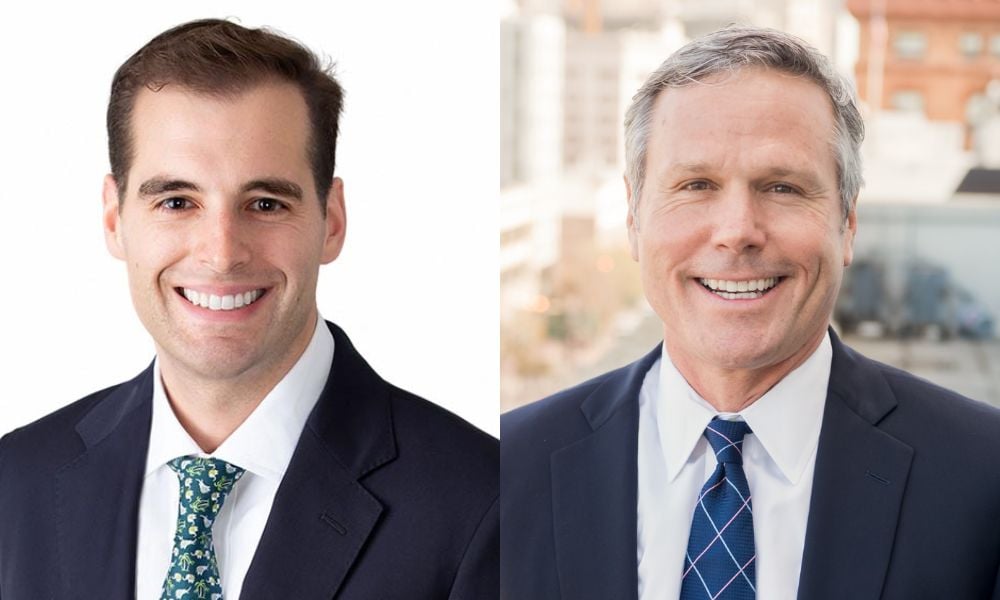

Ahead of Berkshire Hathaway’s annual bonanza in Omaha on Saturday, financial advisors are enjoying not merely impressive returns from Warren Buffett’s trillion-dollar baby, they are also finding safety from a stormy market.
Berkshire Hathaway (Ticker: BRKB) releases quarterly earnings on Saturday, an event that will be followed by a multi-hour meeting where the 94-year old Buffett will take questions from his shareholders. Those shareholders will undoubtedly be in party-mode this weekend too, as the holding company's stock is up 17 percent year-to-date, versus a drop of around 4 percent for the overall S&P 500.
Boosting the firm’s stellar results are its ample cash reserves and defensive positioning amid a market in turmoil. Tariff-turmoil to be specific. Cash and cash equivalents at the Buffett’s holding company totaled about $321 billion, which takes into account payables for Treasury bill purchases, at the end of 2024.
A lot of that cash pile is the result of its paring of its still hefty Apple (Ticker: AAPL) position. Apple, down about 15 percent in 2025, has been reduced to about a quarter Berkshire’s stock portfolio at last check. However, Berkshire was not significantly exposed to losses on other “magnificent” stocks in the S&P 500 including Microsoft (Ticker: MSFT), Nvidia (Ticker: NVDA), and Meta (Ticker: META).
Christopher P. Davis, founding partner at Hudson Value Partners, is heading to Omaha to attend Warren Buffett’s so-called “Woodstock for Capitalists.” Berkshire Hathaway is his firm’s largest position and a bedrock holding across each of his strategies.
And yes, in times like these, he sees Berkshire not just as a smart investment, but as a "safe haven" in a unstable market.
“The combination of resilient, defensive businesses, and substantial cash holdings have added to its attractiveness this year but are what draw long term holders like us in year after year,” Davis said.
As for Berkshire’s “horde of Treasuries,” Davis does not see Buffett’s cash build-up as a problem in the least. Even though Davis can buy government bonds on his own, he views Berkshire’s pile of Treasuries as a strategic advantage.
“We think we are in very capable, disciplined hands and give shareholders embedded optionality when the right business becomes available for them to acquire and add to the Berkshire stable,” Davis said.
Along similar lines, Andrew Graham, managing partner at Jackson Square Capital, is overweight Berkshire in client portfolios. He also considers the stock a “relative safe haven” due to diversified business mix across sectors and industries and high cash reserves.
“The company’s low beta offers protection during periods of extreme market volatility and an overall market downturn presents opportunities to invest the cash opportunistically,” Graham said.
Elsewhere, Jason Craine, wealth manager at Savvy Advisors, is a Berkshire Hathaway shareholder where it aligns with a client’s broader allocation strategy and long-term goals. Like Davis and Graham, Craine is a fan of Berkshire’s disciplined capital allocation, robust balance sheet, and diversified holdings, especially in an environment marked by “geopolitical tensions, inflation concerns, and renewed focus on tariffs and trade policy.”
“Some investors are increasingly viewing Berkshire as a kind of modern safe haven,” Craine said. “While it’s not a substitute for Treasuries or gold, it does offer a compelling middle ground: equity exposure with a defensive tilt, backed by consistent leadership and a fortress-like balance sheet. For long-term investors, that combination can bring a welcomed sense of stability amid volatility.”
While Colin Walker, co-founder of CoFi Advisors, does not own Berkshire Hathaway shares in his portfolio, he does follow the company closely and shares many of the same positions.
“Many people do view it as a ‘safe haven,’ as Berkshire tends to be less volatile than the overall market. Warren Buffett and the late Charlie Munger tend to focus on companies with strong balance sheets versus many other fund managers tend to lean into more momentum plays. This has historically led to less volatility,” Walker said, adding that, “at the end of the day it is still an equity position tied to the performance of the underlying companies and economic cycles.”
Finally, Jeff Erickson, managing director investments at Callan Family Office, owns Berkshire Hathaway in many of his client portfolios, most notably in the Callan Family Office Global 25 Equity Strategy. And he also views Buffett and his investing team to be effective capital allocators.
Nevertheless, he does not view Berkshire Hathaway stock as a safe haven like gold or Treasuries.
“It has a low beta, and we view it as a defensive stock. However, even though Berkshire stock is up year-to-date, we expect Berkshire stock will decline in a market correction, but not as much as the market,” Erickson said.

Rajesh Markan earlier this year pleaded guilty to one count of criminal fraud related to his sale of fake investments to 10 clients totaling $2.9 million.

From building trust to steering through emotions and responding to client challenges, new advisors need human skills to shape the future of the advice industry.

"The outcome is correct, but it's disappointing that FINRA had ample opportunity to investigate the merits of clients' allegations in these claims, including the testimony in the three investor arbitrations with hearings," Jeff Erez, a plaintiff's attorney representing a large portion of the Stifel clients, said.

Chair also praised the passage of stablecoin legislation this week.

Maridea Wealth Management's deal in Chicago, Illinois is its first after securing a strategic investment in April.
Orion's Tom Wilson on delivering coordinated, high-touch service in a world where returns alone no longer set you apart.
Barely a decade old, registered index-linked annuities have quickly surged in popularity, thanks to their unique blend of protection and growth potential—an appealing option for investors looking to chart a steadier course through today's choppy market waters, says Myles Lambert, Brighthouse Financial.
